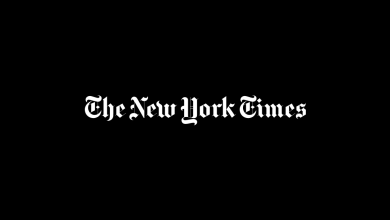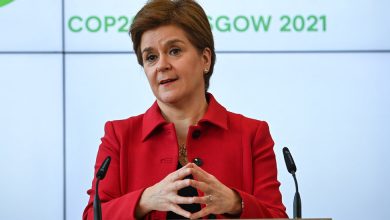Oil prices soar and worries mount about future energy supplies.

Russia’s invasion of Ukraine caused a surge in energy prices on Thursday, adding to worries over tight supplies and raising fresh questions about the flows of oil and gas from Russia into Europe in the months ahead.
Brent crude broke through the $100-a-barrel marker, surging more than 7 percent to above $104 a barrel, its highest in more than seven years. West Texas Intermediate crude rose to just under $100 a barrel.
The flow of natural gas in Europe is more likely than oil to be disrupted by conflict in Ukraine, analysts say. Its price spiked by almost 19 percent to 105.6 euros a megawatt-hour on the TTF exchange in the Netherlands.
Russia supplies about a third of Europe’s gas. Pipelines feed the fuel through Ukraine, although the volumes through those conduits have been reduced in recent months.
The conflict is occurring when supplies of both oil and natural gas have already been tight for months, driving up prices and creating a situation where the risk of disruption sends them up further.
In the case of oil, the key question is likely to be whether flows are disrupted as a result of sanctions imposed by Western governments on Moscow for its actions in Ukraine. Russia is the producer of about one in 10 barrels of oil globally, so any conflict involving it is deeply worrying to oil traders.
If oil prices continue to rise, pressure will grow on countries like Saudi Arabia and the United Arab Emirates — two of the countries thought to have room to increase production — to raise output.
OPEC Plus, a group made up of OPEC and other producers including Russia, has been falling well short of its production targets and has already been pressed by both Washington and the International Energy Agency to step up. Russia, however, is a co-leader of the group along with Saudi Arabia, and so such discussions might be awkward.
In terms of natural gas, the question will be whether Russia continues to supply major customers like Germany and Italy or chooses to use the fuel as a weapon in retaliation for sanctions. Germany’s chancellor, Olaf Scholz, on Tuesday halted the certification of Nord Stream 2, the new $11 billion gas pipeline linking Russia and Germany, prompting an angry reaction from Russian officials.
If Russia cuts back on gas exports, then Europe will try to make up the difference from already strained supplies kept in storage facilities, and by scouring the world for more liquefied natural gas. Flows of LNG, mostly from the United States, have exceeded Russian gas volumes to Europe in recent weeks. Such measures would probably help western European countries like Germany and Italy more than those in the eastern and southern Europe with fewer alternatives to Russian gas.
Even without a clear cutoff of fuel by Moscow or a disruption by war, there is a substantial risk, analysts say, that the extraordinarily high gas and electricity prices that have dogged Europe in recent months will continue indefinitely, squeezing already hard-pressed consumers and, possibly, pushing more businesses to curtail production. In recent months some energy-intensive businesses, including fertilizer makers, have announced closures because of high gas costs.



